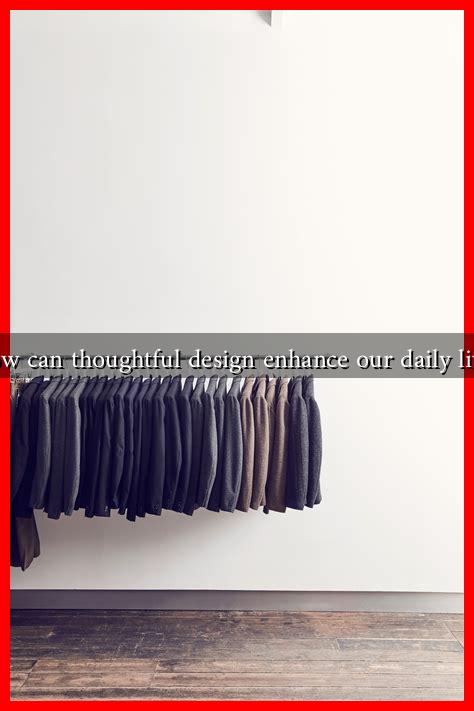-
Table of Contents
How Can Thoughtful Design Enhance Our Daily Lives?
In an increasingly complex world, the role of design extends far beyond aesthetics. Thoughtful design can significantly enhance our daily lives by improving functionality, fostering well-being, and creating a more sustainable environment. This article explores how intentional design choices can lead to better living experiences, supported by examples, case studies, and statistics.
The Importance of User-Centered Design
User-centered design (UCD) focuses on the needs, wants, and limitations of end-users at every stage of the design process. This approach ensures that products and services are tailored to enhance user experience. Here are some key benefits of UCD:
- Increased Usability: Products designed with the user in mind are easier to use, leading to higher satisfaction rates.
- Enhanced Accessibility: Thoughtful design considers diverse user needs, making products accessible to people with disabilities.
- Improved Efficiency: Well-designed systems streamline processes, saving time and reducing frustration.
For instance, the redesign of the OXO Good Grips kitchen tools was inspired by the needs of people with arthritis. The ergonomic handles made cooking easier and more enjoyable for everyone, not just those with disabilities. This case illustrates how thoughtful design can cater to a broader audience while addressing specific challenges.
Designing for Well-Being
Thoughtful design can also significantly impact mental and physical well-being. Environments that prioritize comfort, aesthetics, and functionality can lead to improved health outcomes. Consider the following aspects:
- Natural Light: Incorporating large windows and open spaces in office designs can boost mood and productivity. Studies show that natural light exposure can improve sleep quality and reduce stress.
- Biophilic Design: Integrating nature into urban spaces—such as parks, green roofs, and indoor plants—can enhance mental health and promote relaxation.
- Color Psychology: The use of color in design can influence emotions. For example, blue hues are often associated with calmness, while yellow can evoke happiness.
A notable example is the design of the Google office spaces, which incorporate natural elements, open layouts, and vibrant colors. This thoughtful approach has been linked to increased employee satisfaction and productivity, demonstrating the profound impact of design on well-being.
Sustainable Design for a Better Future
As environmental concerns grow, sustainable design has become a crucial aspect of thoughtful design. Sustainable practices not only benefit the planet but also enhance our daily lives. Key principles include:
- Resource Efficiency: Using materials that are renewable or recycled reduces waste and conserves resources.
- Energy Efficiency: Designing buildings that utilize natural ventilation and solar energy can lower energy costs and reduce carbon footprints.
- Community Engagement: Involving local communities in the design process ensures that projects meet their needs and foster a sense of ownership.
One exemplary case is the Bosco Verticale (Vertical Forest) in Milan, Italy. This residential complex features two towers covered in over 9,000 trees and 20,000 plants, improving air quality and providing a habitat for wildlife. Such designs not only enhance urban living but also contribute to environmental sustainability.
Conclusion: The Power of Thoughtful Design
Thoughtful design is a powerful tool that can enhance our daily lives in numerous ways. By focusing on user-centered principles, promoting well-being, and embracing sustainability, designers can create products and environments that improve our quality of life. As we continue to navigate the complexities of modern living, the importance of thoughtful design will only grow. Investing in design that prioritizes human experience and environmental health is not just beneficial; it is essential for a better future.
For more insights on the impact of design on daily life, consider exploring resources from the Design Council.


